Guest feature - EnBW | EVs and customer experience: a great combination!
At the moment the discussion around electric vehicles is all around the society and has also been picked up by the whole industry.
However, most of the discussion spans around the challenges of charging infrastructure as well as the challenges around battery capacity, charging times for long distance coverage. Therefore I think it is about time to change perspective and think about the customer experience and how EVs will make our life easier.
To start with I believe it is important to agree on what really matters to customers and human beings. As a concept I strongly believe that the single most valuable thing to human beings is time as it is the only thing which is limited and cannot “yet” be extended. Almost all highly successful products launched these days relate to this thesis (think about smartphones, or digital services like Airbnb or Uber).
So let’s look at EVs from that perspective:
The next generation of EVs will come with battery capacities of 150-200 kW/h which is good for more than 500 km.At the same time when we look at statistics we realize that average distance covered per person/day is 46 km and even less so only 12.3 km consecutively per day. The next thing to consider is that next generation of EVs is also preparing for induction based charging.
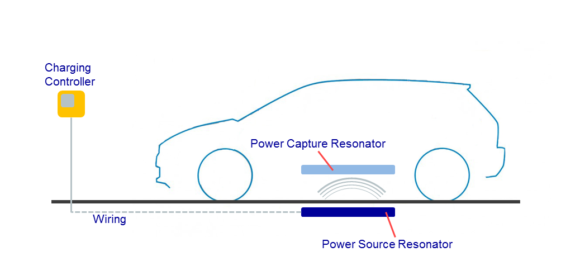
induction based charging
Now let‘s look at an average customer journey:
Assume your car is sitting in your garage (private, or alternatively your shared garage). This garage will be equipped with induction capability as a one time invest. Then once you return home you will simply park and the car will start charging slowly to be ready the next day. The same will happen when you go shopping in the public garage or also when you are at work.
Due to the relatively long time the car will be in that place (usually the whole night) it will be charged next morning using low charging capacity and peak optimization (virtual power plants)
As a result we will experience “always charged” EVs in the future.
Now in the rare moments when we seriously drive more than 300-400 km we will start using high speed charging infrastructure alongside the major roads. However, ask yourself how often does this apply to you?
In average this only happens 3-4 times per year.
As a result we will see the concept of a filling station or charging points in urban areas to disappear for most of the car users (latest fully once cars drive autonomously). This is because your car will be always charged.
Let’s come back to the original rationale: a petrol driven car needs to get refueled on average every 500 km (assuming 8l/km and a 50 l tank). This takes about 10-15 minutes excluding your way to the filling station.
As a result based on a 10.000 km coverage per year you will end up spending 5 hours of your precious life filling up your car – probably not the best use of your time. At the same time with your EV you will only be spending time to charge on long distance meaning you will be spending about 2,5 hours statistically charging (5 full charges on an 300kw high speed charger).
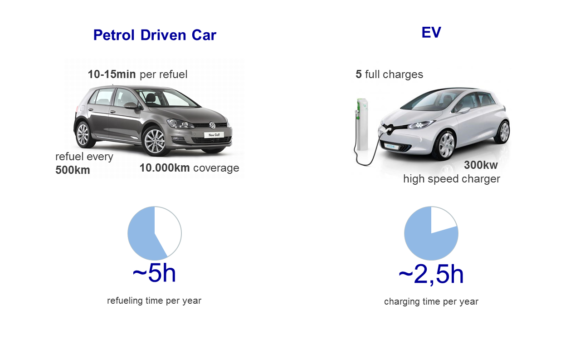
charging/refueling time per year
So every year you will be saving more than 2.5 hours of precious lifetime on dirty cold and ugly filling stations plus at least 15 times stinky and dirty hands.
As a result it is about time to prepare for your EV experience and start using the saved lifetime to take your loved one out for dinner.
About the author: Timo Sillober, Director Products & Services and Digitization at EnBW, Energie Baden Württemberg AG, is in charge of the consumer and enterprise product development and P&L, focusing on decentralized, autarkic energy concepts and digital business. Before moving the industry Timo Sillober was part of Vodafone Germany’s Executive Committee as Director Transformation & Digital developing Vodafone to become the leading digital Telco in Germany 2012-2015. Previously to that he built the first omni-channel Telco in UK as part of his role as Head of Transformation and Digital in Vodafone UK. Previous work experience includes building and running a pan European Enterprise IT in Vodafone 2005-2009 and Enterprise Sales Director and Business Development Role in Siemens Business Services. He initially started his career in Siemens Communications in the commercial business administration space.
Read this post in EnBW’s German version.



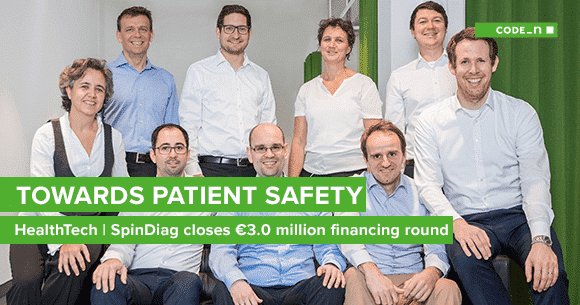
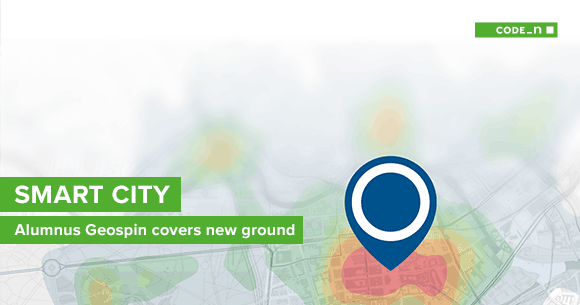
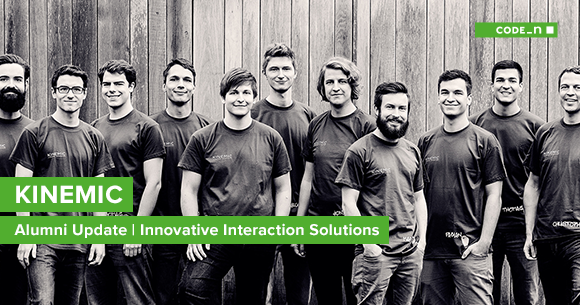
Comments